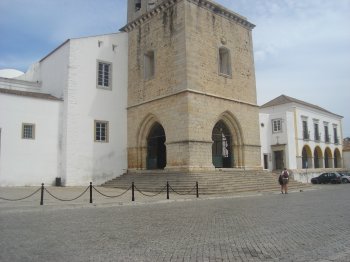Explore the best places
Monuments in Faro
Igreja da Misericórdia de Faro
- heritage
Praça Dom Francisco Gomes de Avellar, 17
8000-168, Faro
This church, sided by a hospital, started its construction in 1581, in the place of the old Espírito Santo hermitage, by order of the bishop Dom Afonso Castelo Branco. In the sequence of the great damage inflicted by the earthquake in 1755, the façade was remodelled and a new hospital was built.
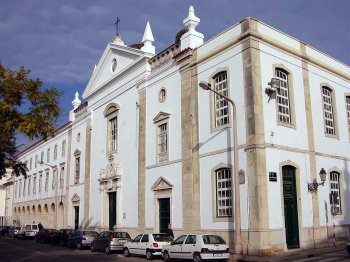
Arco da Vila
- heritage
Rua da Misericórdia, 8
8000-269, Faro
In the heart of the town, in Largo da Sé, this arch is one of the most important architectural complexes in the Algarve. This monumental portal is a 19th century reconstruction. Inside there is an Arab portico, unique in the Algarve region. In the niche above the Arch there is an image, in white marble, of Saint Thomas Aquinas.
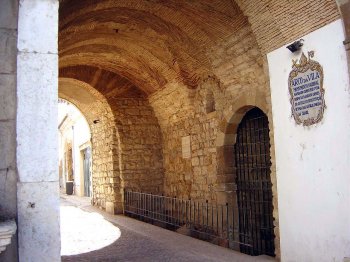
Arco do Repouso e Muralhas de Faro
- heritage
Rua do Repouso
8000, Faro
Gateway to the medieval walls built by the Muslim prince Ben Bekr as a defense against Christian invasion. It is formed by two towers with two side entrances. Close to this door are the remains of the wall that protected the medieval Vila Adentro.
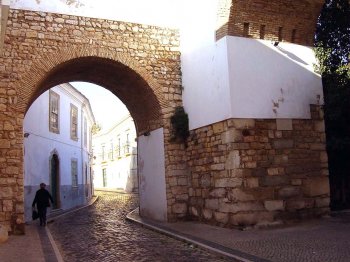
Villa Romana de Milreu
- heritage
Rua de Faro
8005-443, Estoi
The Roman Villa of Milreu, dating from the 1st or 2nd century, was remodeled in the 4th century. It was occupied until the 6th or 7th century. Currently, the structures of a large manor house, built in the 1st century and remodeled in the 3rd and 4th centuries, the agricultural facilities, a bathhouse and a temple are evident.
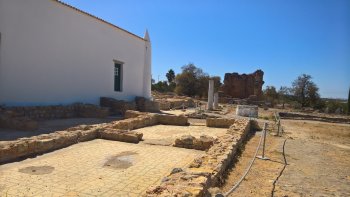
Igreja de Nossa Senhora do Carmo e Capela dos Ossos
- heritage
Largo do Carmo
8000-148, Faro
The Church of the Venerable Ordem Terceira de Nossa Senhora do Carmo, one of the most important religious monuments in the Algarve, was inaugurated in 1719. The Capela dos Ossos, inside it, was built in 1816 with bones from a nearby cemetery.
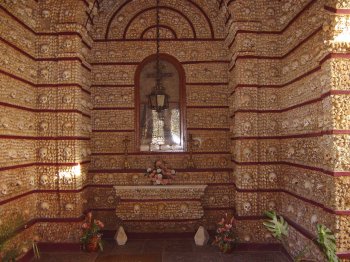
Sé Catedral de Faro
- heritage
Largo da Sé, 11
8000-138, Faro
Of the primitive Romanesque-Gothic construction, only the clock tower and two chapels on the cross remain. A looting and a fire, in 1596, required major works, continued later due to the earthquakes of 1722 and 1755. The church shows several influences: Gothic, Renaissance and Baroque.
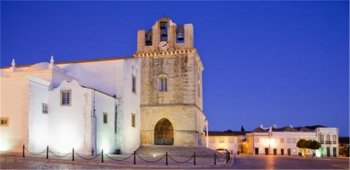
Igreja Matriz da Conceição de Faro
- heritage
Rua 25 de Abril
8000, Faro
A church with a longitudinal plan, a sole nave and a manuelin main chapel, with a portal of the late Renaissance. The main façade and the belltower are neoclassic. One should notice the triumphal arch and the main chapel with a star dome.
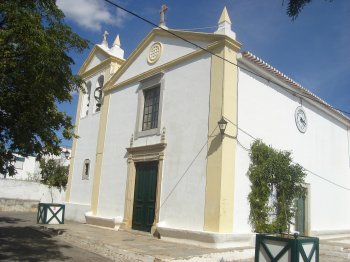
Edifício do Teatro Lethes/ Antigo Colégio de Santiago Maior
- heritage
Rua de Portugal, 58
8000-281, Faro
This small building was built in a place previously occupied by the Colégio de Santiago Maior. It was founded in the first half of the 17th century by the Companhia de Jesus. In the 19th century, the church was adapted to a theatre and the three doors and three windows of the original building were preserved. The central body was enlarged at the expense of the two towers that surrounded it. The interior was adapted to its new functions.
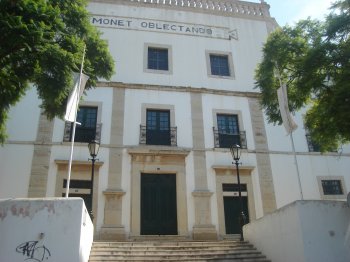
Convento de Nossa Senhora da Assunção
- heritage
Praça Dom Afonso III, 14
8000-167, Faro
This convent, founded by Dona Leonor, is an important example of the first Renaissance art in the Algarve. The church's dome has a rococo decoration of the 18th century. There is also a curious watchtower of the 16th century.
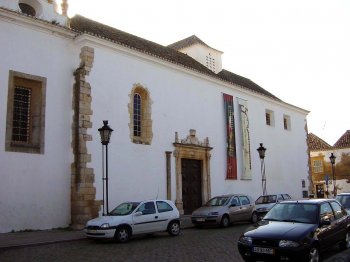
Seminário Episcopal de São José
- heritage
Largo da Sé, 19
8000, Faro
A seminary with two floors, asymmetric fenestration in the north part rococo and regular in th south part neoclassic. One should notice the large dimensions of the building and th architectural individuality of the dining room and of irs diammetrically opposed part. A note also to the design of the span frames, in cut rod, with stonework in the main façade and mortar in the public area.
